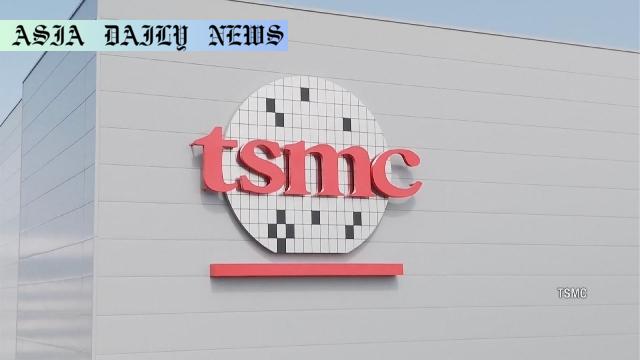TSMC marks significant expansion in Taiwan with 2-nanometer chips production.

TSMC’s Strategic Expansion: A Closer Look at the 2nm Era
The Taiwan Semiconductor Manufacturing Company (TSMC) has officially inaugurated the expansion of its production facility for next-generation 2-nanometer chips in Kaohsiung, Taiwan. This milestone event not only marks a leap forward in semiconductor technology but also underscores TSMC’s continued confidence in Taiwan’s manufacturing capabilities. As the world’s leading contract chipmaker, TSMC’s pivotal role in shaping the future of global semiconductor markets has taken center stage, particularly as geopolitical and economic factors influence the tech industry. The factory’s operational plan, slated to begin mass production in the second half of this year, represents a commitment to innovation and underscores TSMC’s role as a global technology leader.
Specifications and Economic Impact of the Kaohsiung Facility
The Kaohsiung facility’s focus on 2-nanometer technology signals a commitment to addressing the increasing demand for advanced semiconductor solutions. These chips are expected to power next-generation technologies, including artificial intelligence, 5G connectivity, and autonomous vehicles. By investing heavily in this facility, TSMC not only boosts Taiwan’s industrial ecosystem but strengthens its competitive edge on the global stage. In collaboration with the Taiwanese government, represented by Premier Cho Jung-tai at the event, TSMC reaffirms its commitment to retaining its core research and development (R&D) capabilities within Taiwan. This expansion is a testament to Taiwan’s status as a critical player in the global semiconductor industry.
Balancing Taiwan and Global Expansion Efforts
TSMC’s decision to allocate substantial resources to its 2nm facility comes amid its $100 billion commitment to expand production capabilities in the United States. While this investment was welcomed by former U.S. President Donald Trump as a major boost to American tech, concerns arose within Taiwan about a potential technology migration or brain drain. TSMC’s public reaffirmation of its dedication to Taiwan addresses such fears. The Kaohsiung site’s expansion illustrates their intention to maintain a balanced growth strategy that ensures technological advancements remain Taiwan-centric while navigating increasing global demands. This approach not only builds investor confidence but also assures the local workforce of continued opportunities and growth prospects.
Addressing Global Supply Chain Challenges and Innovations
The semiconductor industry has faced unprecedented challenges over the past few years, including supply chain disruptions, geopolitical tensions, and varying demands from tech manufacturers. TSMC’s investment in next-gen facilities such as Kaohsiung highlights their proactive stance in resolving these challenges. Moreover, these initiatives set the stage for innovative breakthroughs that align with global trends, such as decarbonization and energy efficiency. By investing in advanced manufacturing techniques and state-of-the-art technology, TSMC contributes to the sustainability of the industry while solidifying its role as a leader in both innovation and responsible production methodologies.
Conclusion: Taiwan’s Semiconductor Supremacy
This expansion project is not just TSMC’s story; it serves as a reflection of Taiwan’s growing prominence in the semiconductor world. As global demand continues to climb, Taiwan stands as a beacon of innovation, resilience, and technology leadership. The 2-nanometer manufacturing expansion underscores not only TSMC’s ambitions but also Taiwan’s integral role in shaping the technological advancements of tomorrow. With strong backing from both its government and its corporate leaders, Taiwan’s semiconductor industry appears set to thrive for decades to come.
Commentary
The Importance of TSMC’s Local Commitment
TSMC’s decision to enhance its manufacturing presence in Taiwan is a crucial step in safeguarding the island’s economic and technological sovereignty. While it is laudable that TSMC is strategically diversifying its operations by investing in global facilities, such as the $100-billion project in the U.S., its reaffirmed dedication to Taiwan sends a significant message. In an age where globalization often leads to concerns over domestic talent drain or technology migration, TSMC is striking a balance that prioritizes local growth and development. The expanded Kaohsiung facility not only cements Taiwan’s stake in the semiconductor domain but also helps preserve the island’s role as a key player in global technology supply chains.
A Future Powered by 2nm Chips
The shift toward producing 2-nanometer chips represents a transformative advancement in microchip innovation. By embarking on this venture, TSMC demonstrates its commitment to staying ahead of competitors in the race to innovate cutting-edge technology. These chips are expected to revolutionize applications ranging from artificial intelligence and quantum computing to more energy-efficient consumer electronics. The readiness of TSMC to embrace groundbreaking manufacturing technologies also shows their commitment to minimizing environmental impacts while enhancing computational performance. Such forward-thinking strategies resonate deeply with the global push for digital transformation and sustainability.
TSMC’s Leadership in an Evolving Geopolitical Landscape
As geopolitical tensions continue to influence global industries, TSMC finds itself at the crossroads of technology and diplomacy. Its ability to expand simultaneously in Taiwan and internationally demonstrates strategic acumen. By addressing concerns related to potential technology transfers abroad, while also contributing to Taiwan’s industrial ecosystem, TSMC ensures a win-win scenario for both the island and the wider industry. In all, one can appreciate TSMC’s role as not just a company, but a steward of technological and economic progress.


